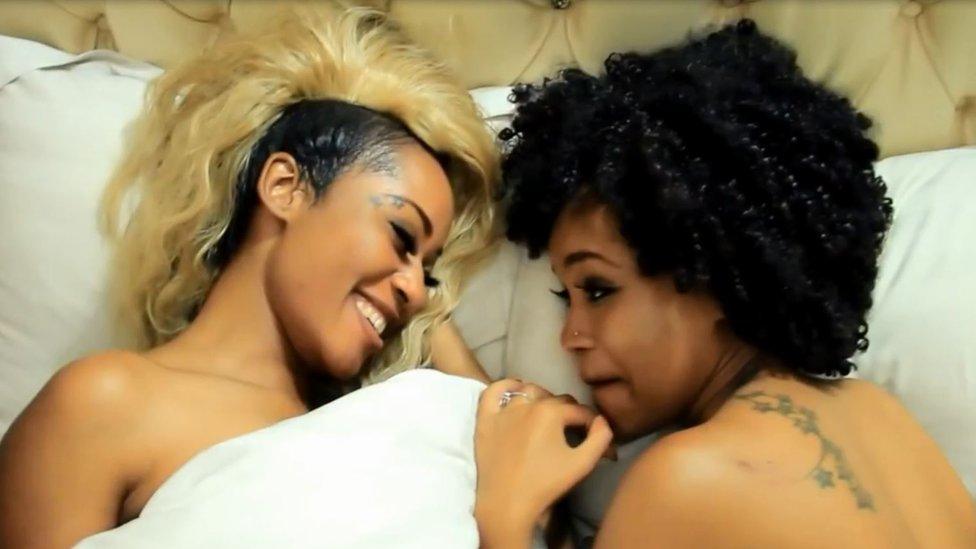Singing as if you're straight... when you're gay
- Published
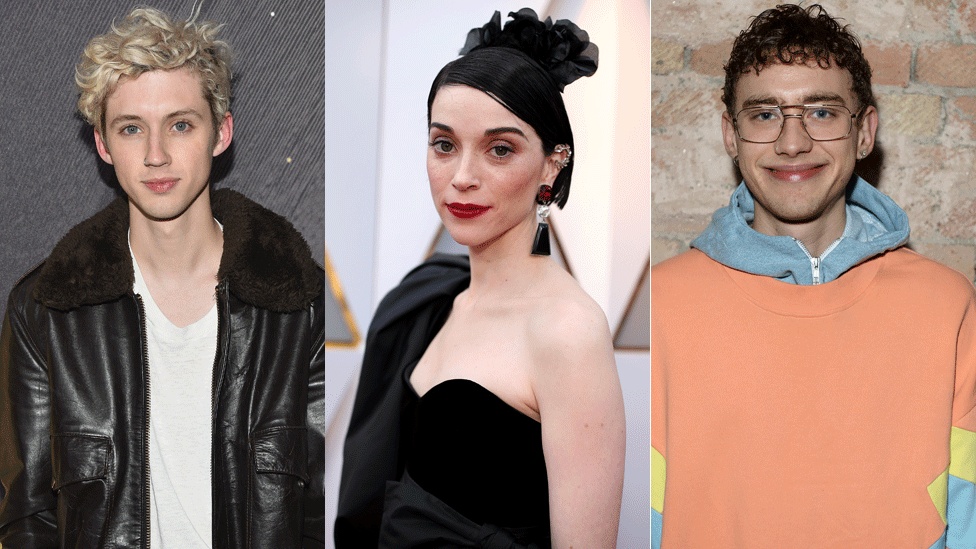
Troye Sivan (left) and Olly Alexander are openly gay artists, while St Vincent (centre) has spoken about sexual and gender fluidity
As Bob Dylan reversions a song for a compilation EP that turns classic tunes into same-sex wedding tracks, we look at how gender lyrics have evolved over the years.
This month saw the release of an EP featuring six tracks that have been given a same-sex twist by changing the pronouns around in the lyrics.
Dylan has re-recorded the 1929 song She's Funny That Way, changing it to He's Funny That Way, for Universal Love: Wedding Songs Reimagined.
He's joined by Ben Gibbard of Death Cab For Cutie, who sings The Beatles' And I Love Her (Him); Kesha, who tackles Janis Joplin's I Need a Man (Woman) to Love; and country/blues singer Valerie June, who sings Mad About the Boy (Girl).
The compilation also features St Vincent, who turns The Crystals' And Then He Kissed Me into And Then She Kissed Me, while Bloc Party's Kele Okereke does the same with The Temptations' My Girl (Guy).
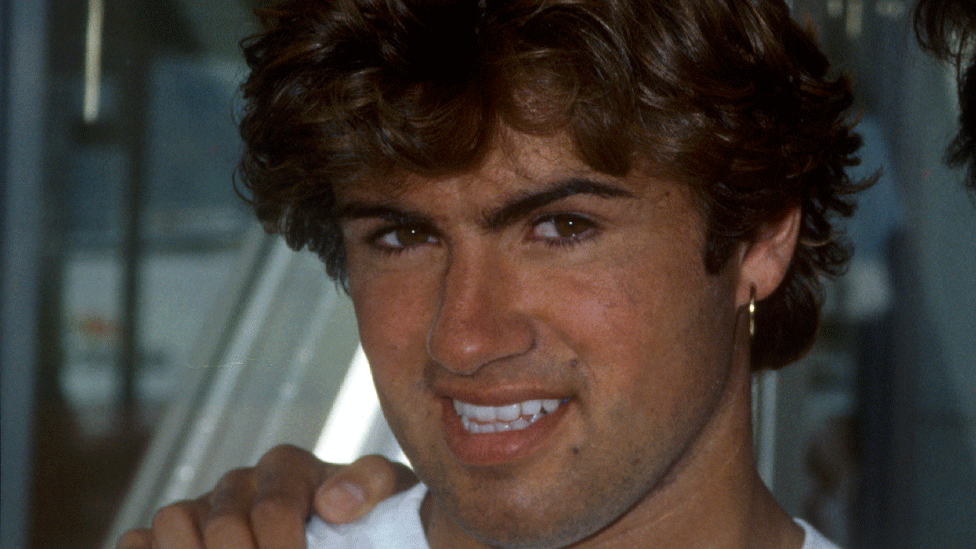
George Michael was a huge pin-up throughout his career
Pop has always had a strong connection with the gay community, and many artists and groups - including Boy George and Bronski Beat - have been out and proud.
Before them the likes of Dusty Springfield blazed a trail. She came out as bisexual in 1970 in the London Evening Standard, saying: "I know that I'm as perfectly capable of being swayed by a girl as by a boy."
But while some hits - including Tom Robinson Band's (Sing If You're) Glad to be Gay, Bronski Beat's debut single Smalltown Boy and Frankie Goes to Hollywood's Relax - have openly spoken about gay issues, it's often been the case that male gay artists and gay female singers have stuck to "she/her" and "he/him" pronouns in love songs.
Huge gay artists such as Sir Elton John and George Michael would often sing love songs about women.
Fiorenzo Palermo, a senior lecturer in popular music at Middlesex University, says: "In the particular case of the LGBTQI+ community, the practice of adopting/adapting songs" - a strategy often called "queering" - "is by and large a result of the stigma and shame that has been attached in the past to same-sex desire and the difficulty in finding popular songs that openly and explicitly expressed it."
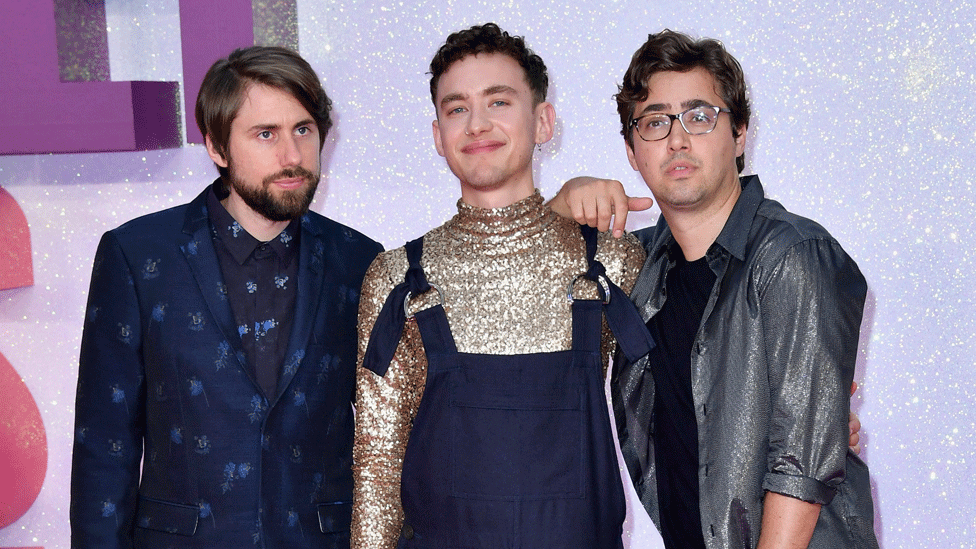
Years & Years recently had a hit with Sanctify, about straight men who experiment with their sexuality
Dr Palermo says there can still be a struggle for artists to "come to terms with social and commercial commitments".
"A 'gender-neutral' song may be more 'universal', and therefore the implication is that it will reach more people - i.e. sell more."
Freelance journalist Eve Barlow agrees that commercial considerations are key.
"Something has shifted in the past couple of years," she says.
"The cynic in me is sceptical about the real reason as to why certain artists with the highest pop stakes are suddenly liberated to use gender pronouns which their identity correlates to, because it's become more commercially viable to have a wider representation of sexual identity in pop."
'More progress to be made'
But she adds: "I like to say we live in a more tolerant society now, and laws" - like the ones governing same-sex marriage - "have changed."
Eve says that "LGBTQ artists and listeners are still under-represented".
"We've been revisiting George Michael's career since his death - the idea of thinking that one of the biggest stars on the planet had to be closeted is mind-boggling. There is a lot more more progress to be made.
"In general, I think there's a lot more to be done in terms of the creation of non-binary mainstream pop music that can be enjoyed by fans of all gender identities and sexualities."
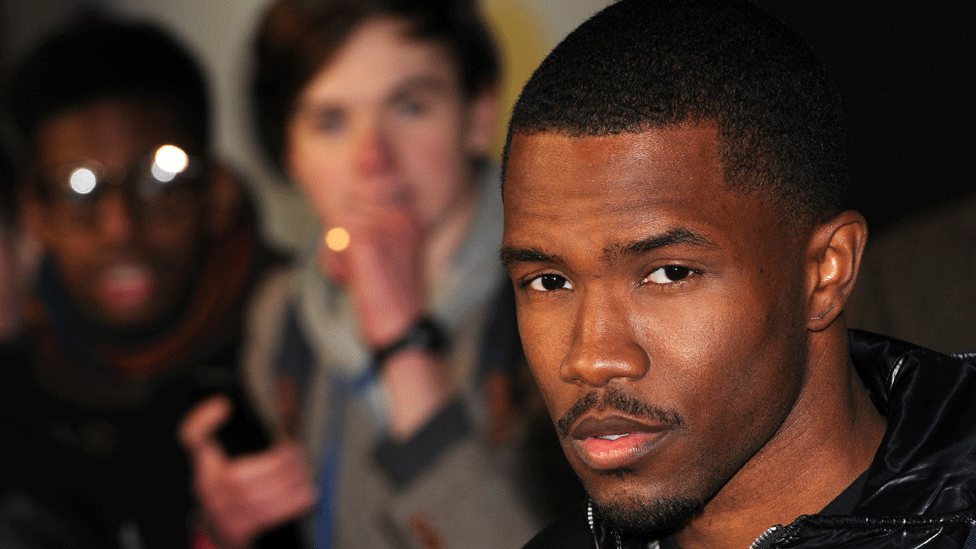
Frank Ocean's song Blonde is about a failed date in a gay bar
There definitely seems to have been a shift in recent years.
Since Years & Years won the BBC's Sound of 2015, lead singer Olly Alexander has been refreshingly open about his sexuality.
Speaking at a Stonewall event recently, he said he was advised by a media trainer not to disclose his sexuality when the band signed a record deal - but he ignored the advice.
"When a journalist did ask me about my sexuality, I said 'Yes, I'm gay and this song is about a man'.
"I needed to say that for my 15-year old self. I needed to say to him 'Look, we are not hiding any more.'"
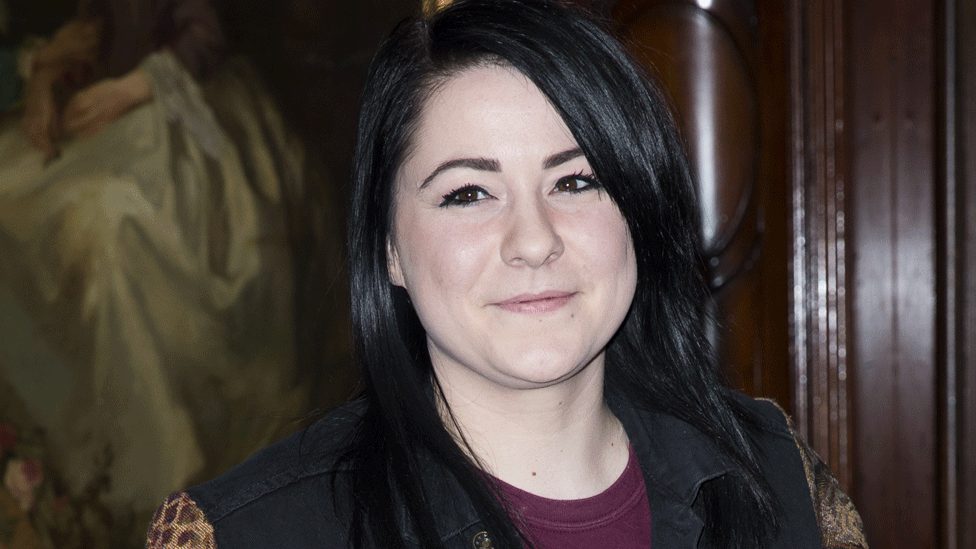
Lucy Spraggan says that traditionally, there haven't been many iconic lesbian music artists
In an interview with Out magazine, external after the release of the band's debut album in 2015, Olly said: "I know it's a small triumph, but I've got male pronouns into two of the songs on our album, Communion.
"We're only ever going to get one chance to make a debut album, and it has to be right. It has to be this. I couldn't be any prouder of it."
Last year, Olly teamed up with Bloc Party frontman Kele Okereke to perform a duet on Kele's Fatherland album.
"I was aware there wasn't a precedent, I couldn't think of two gay musicians singing romantically to one another, but I felt I'm in a position to challenge that and I should challenge that," Kele told the BBC's Front Row.
Fellow star Sam Smith tells the story of a boy in Mississippi coming out to his father in a track called Him from his recent album The Thrill Of It All.
It was partly inspired by criticism that Smith didn't use gender-specific pronouns like "he" and "him" on his first album.
Frank Ocean, who came out on Tumblr quite early on in his career, has one song on his latest album Blonde - Good Guy, about a failed date in a New York a gay bar - that uses the male pronoun.
'As gay as I want'
And speaking about his single My My My! on the Radio 1 Breakfast Show earlier this year, Troye Sivan told Nick Grimshaw: "I really wanted it to sound gay.
"There's no guys making out or anything like that. Besides that it's just me being as gay as I want.
"Leather waistcoat, strutting up and down, wind machines, greasy skin, wet hair - it made me so happy."
Singer Lucy Spraggan, who first found fame on The X Factor in 2012, says she likes her music to speak to everyone.
"I can't speak for others but I always felt I didn't want to exclude anyone from listening to my music, so I always kept it gender-neutral.
"I enjoy the fact that anyone can listen without consciously having to switch the sexes around. Saying that, I have always mainly written in the first person.
"If someone doesn't want to listen to music based on the artist's sexuality, I'm quite happy for them to not listen.
"I can remember plenty of iconic gay male artists and plenty of female heterosexual 'gay icons', but it's hard to put a finger on many lesbian ones.
"However, the world is changing, the industry is changing and I'm ready for it!"
The Universal Love: Wedding Songs Reimagined EP is available now.

Follow us on Facebook, external, on Twitter @BBCNewsEnts, external, or on Instagram at bbcnewsents, external. If you have a story suggestion email entertainment.news@bbc.co.uk, external.
- Published19 March 2018
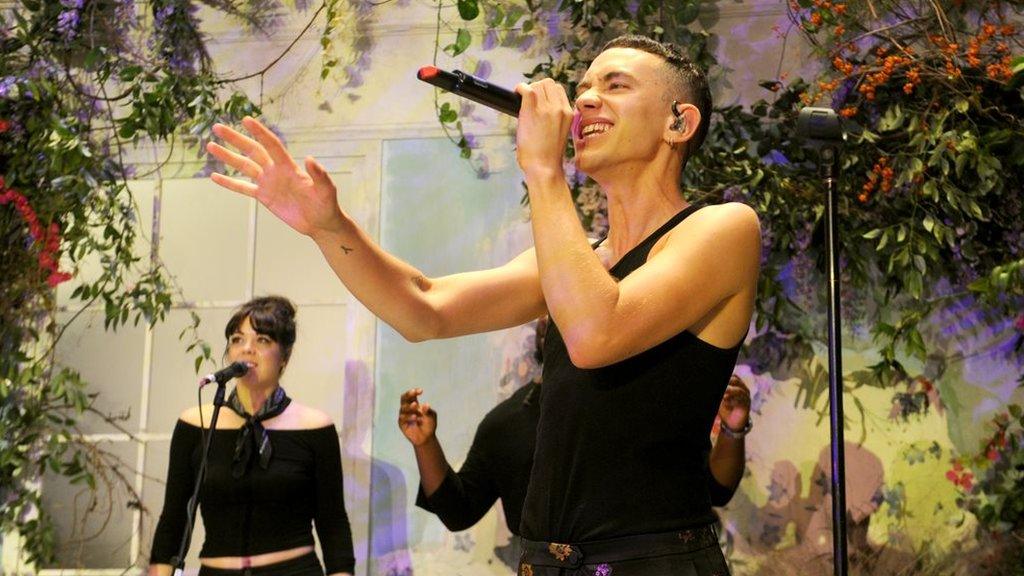
- Published9 November 2017
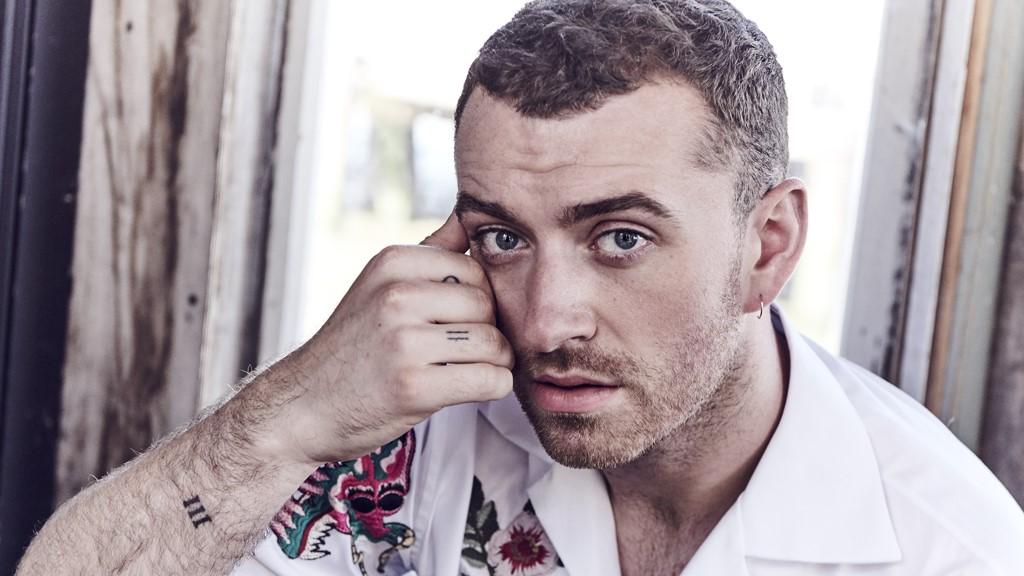
- Published11 March 2016
